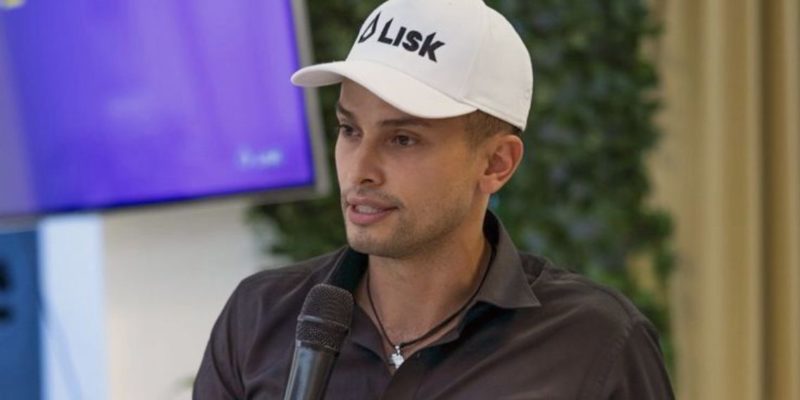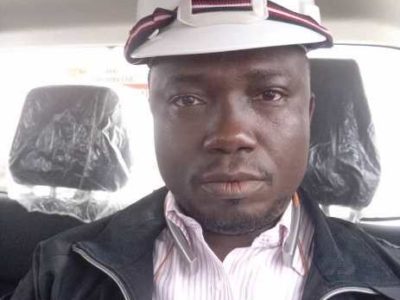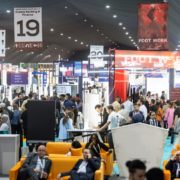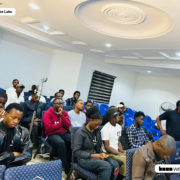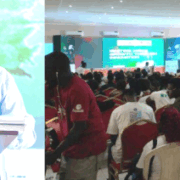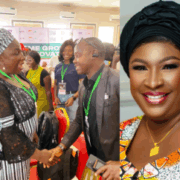An exclusive interview with Santiago Trujillo Zuluaga, Developer Advocate at Lisk. By Nana Theresa Timothy.
The world of blockchain is filled with inspiring journeys, and Santiago’s stands out as a true example of dedication to Web3 growth. Now serving as a Developer Advocate at Lisk, he has become a strong voice for driving blockchain adoption and developer empowerment. On his recent visit to Nigeria for ProdFest in Jos, Santiago shared his insights on Africa’s rising tech potential, the importance of advocacy in building thriving ecosystems, and why Nigeria holds a special place in his heart.
RELATED: ProdFest 2025: Building the future of tech, web3, and innovation in Africa
Who are you and what do you do?
My name is Santiago, I’m from Colombia, and I work as a Developer Advocate. What that means is I help onboard developers into the blockchain ecosystem. I teach them about the technology, guide them on creating applications, and show them how to use developer products effectively.
Right now, I work for Lisk, a blockchain Layer 2 platform that makes it easier for developers and founders to build real-world applications on blockchain. On one hand, I support developers by teaching and mentoring. On the other, I support founders by giving them resources and guidance to launch their companies.
How has your African experience been so far?
Africa has been an amazing journey. Each country gives me a different perspective. For example, Kenya is my favorite place to live because of the infrastructure — you can pay with cards easily and there’s less friction in daily life. Uganda and Congo are my favorite to travel because of the nature, it’s breathtaking.
But when it comes to blockchain and working with developers, Nigeria is number one. Wherever I go here, Lagos, Abuja, Kaduna, Enugu, Jos, I find hubs full of people eager to learn and build. The eagerness to learn and create is unmatched. That’s why Nigeria is my favorite country to work in.
What was your experience like at ProdFest in Jos?
First, I love Jos. The cooler weather is refreshing compared to other parts of Nigeria. The people were warm and welcoming, and the food was great.
At ProdFest, what stood out most was the diversity of participants. I met developers, founders, professors, and even politicians. This kind of mix is powerful, you never know when a conversation with a policymaker could shape blockchain laws, or when a talk with a founder could spark a new startup. The organization was also impressive, from the stage setup to the programming.
Can you give an example of a project built on Lisk?
One great example is Afrikabal, a project from Rwanda. It connects farmers directly with buyers and investors, cutting out middlemen who often take most of the profits. Africaval was part of our incubation program, later joined Google’s acceleration program, and even secured $100,000 from the United Nations Development Programme.
This is the kind of impact we want, solving everyday challenges with blockchain.
How can African founders and developers take advantage of opportunities with Lisk?
First, you need to be committed to solving a real problem. We don’t support “grant hunters” who jump from program to program chasing money. We look for founders with proof of work, traction, and dedication.
For Africa, we run two main incubation programs:
- CV Labs Incubation (5 months, online, two cohorts per year)
- AyaHQ in Ghana (3 months online + 2 weeks in-person in Ghana or Kenya)
These programs cover everything from fundraising and marketing to business models. Founders who complete them get access to resources, mentorship, and even funding.
Must these founders be technical experts?
A good founder doesn’t have to be a coder. What matters most are entrepreneurial skills, problem-solving, resilience, and commitment. You should also understand the basics of Web3, even if you don’t code.
There are non-technical roles in Web3 too marketing, HR, finance, law, content creation. So, there’s space for everyone. But you need to learn the basics of blockchain to align your startup with the right technology.
As a Developer Advocate, what does your role really entail?
For me, being an advocate is more than raising awareness. It’s about building trust and genuine connections with people. That’s why during the Lisk Africa Tour, I make sure to spend at least 15 minutes with every developer or founder who wants to talk. Listening is just as important as teaching. That feedback is how we build solutions people actually trust and want to use.
What’s been your most exciting experience, personally and in Web3?
Personally, my favorite experience was in Congo, where I saw gorillas in the wild. I love Africa, especially its wildlife.
In Web3, one of my highlights was visiting Ikorodu, Lagos, where the Web3Bridge hub trains developers. Young people live there for three months, coding 24/7, and by the end, they’re job-ready. The energy there inspires me every time.
If you could give advice to your younger self, what would it be?
I would tell myself to be more efficient with time and focus. I lost time chasing distractions like learning French when my real goal was coding in JavaScript and Solidity. If you focus fully on your goals, you’ll achieve them faster.
From cleaning dishes in Portugal to shaping blockchain innovation in Africa, Santiago’s journey shows the transformative power of technology and persistence. His story is a reminder that with commitment, focus, and a willingness to learn, anyone can step into the Web3 revolution and perhaps even change the world.

